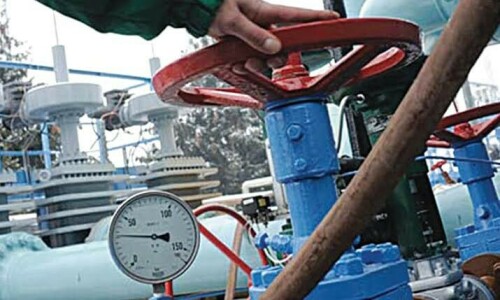WITH Pakistan passing the grim milestone of over 10,000 coronavirus cases and more than 200 deaths, there is no time for half measures and missteps. Lockdown fatigue seems to have set in with many people flouting SOPs and safety measures, and ignoring the fact that we are sitting on a time bomb that will detonate unless firm steps are taken immediately.
The battle against Covid-19 must be fought on multiple fronts, but one area where decisive action can be taken without delay is that of congregational prayers. Various provincial administrations had taken differing steps regarding the suspension of congregational prayers in mosques to stop the spread of the contagion, with varying degrees of success. Sindh tried to implement the law in letter and spirit, though there were instances where mobs attacked law enforcers trying to enforce the ban on Friday prayers.
However, at a conclave in Islamabad on Saturday, President Arif Alvi and a collection of clerics belonging to different schools of thought hammered out a 20-point ‘action plan’ that envisaged reopening of mosques for the public, especially in light of the fasting month, which is due to begin either tomorrow or the day after. Under this scheme, daily and taraweeh congregational prayers would be allowed with a number of ‘precautions’, though the last point of the plan clearly stated that the restrictions could be put back in place if the number of cases shot up.
The administration, as well as sensible clerics, need to realise that Pakistan cannot afford to take a chance by reopening mosques at this juncture. Attendance at masjids goes up during Ramazan, and it is hard to imagine how the state as well as mosque administrations will enforce social-distancing guidelines. Moreover, in a letter released on Tuesday, some leading doctors of the country have asked ulema to review the decision on congregational prayers. They point out that indiscipline and contempt for the rules has become part of our national character; therefore, in order to protect public health the decision to open mosques to the public must be reviewed.
Clerics say that social-distancing norms are also being violated in markets. That may be so, and the administration needs to do a better job of ensuring crowding does not take place in bazaars and markets. But the comparison between shopping for food — which is a necessity — and attending congregational prayers — in which there is much flexibility, especially in times of a pandemic — is not a sound one. Even Saudi Arabia has said only a few staff members will be allowed to offer taraweeh prayers at the two holy mosques of Makkah and Madina. If other Muslim states can take sensible decisions, there is no reason why our rulers should be swayed by emotional, ill-informed appeals. For the sake of public health, both the state and ulema need to reverse the decision on congregational prayers.
Published in Dawn, April 23rd, 2020












































